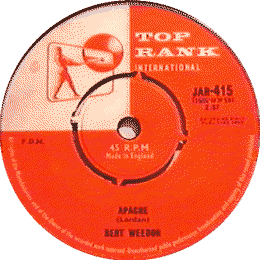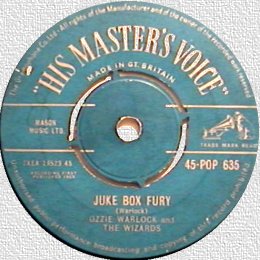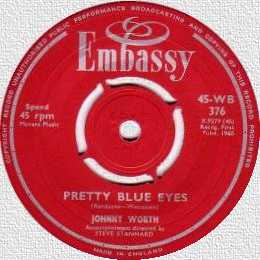
|
1960 | |
|
Johnny Kidd born December 23rd
1939, Willesden, London |
||
|
'Shakin' All Over' is one of the greatest Rock and Roll songs to have been written and produced in the UK. Its only significant British rival is Cliff Richard's 'Move It' of two years earlier. Remarkably, like 'Move It' it was destined to be a 'B' side, because Johnny Kidd and the Pirates were fond of remaking very old standards and 'rocking' them up. 'Shakin' All Over' is backed by 'Yes Sir, That's My Baby'! |
||
|
It was the guitar riff played by Joe Moretti that worked so well on 'Shakin' All Over' and helped it achieve the #1 spot. The follow up was 'Restless' which clearly tries to relive the same atmosphere as 'Shakin' All Over' but only reached a meagre #19. However, the eye-patched Johnny Kidd remained popular and once more reached the top ten in 1963 with the 'Beat Group' sound of 'I'll Never Get Over You'. This was a remarkable achievement for an established Rock & Roller who was not from Merseyside. Johnny Kidd died in a car crash near Manchester on October 7th 1966. |
||





